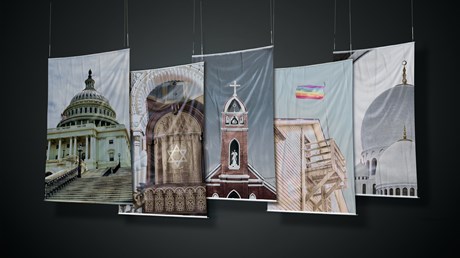Understood rightly, it offers the best hope of keeping pluralistic societies peaceful and free.

Most Christians have a negative impression of the word secularism. Can it be rescued from its association with antireligious animus? Michael F. Bird, a theologian teaching at Ridley College in Melbourne, Australia, attempts this balancing act in Religious Freedom in a Secular Age: A Christian Case for Liberty, Equality, and Secular Government. Natasha Moore of the Centre for Public Christianity (also in Australia) spoke with Bird about the place of faith in pluralistic societies.
How has religious freedom become such a contested ideal?
In the West, we’ve long assumed that Christianity was the default setting and Christians were the chaplains for Christendom. But now, as we enter a more post-Christian era and even a time of radical de-Christianization, new fault lines are emerging. And that’s going to affect the way we think about competing rights between different groups. It’s going to call for some very, very interesting management of diversities in our multicultural democracies.
What do you wish Christians—and secularists—knew about secularism?
I wish Christians knew that secularism is not a bad thing. It’s actually a good thing. Secularism is what stops a country from becoming a theocracy, where the government politicizes religion and religion becomes culturally shallow. Secularism is what protects you from government attempts to regulate, define, or interfere with your religion.
I wish secularists knew that secularism is a very broad term. There are different types of secularism that exist in France, Thailand, Japan, or Australia. And it doesn’t mean deliberately marginalizing people or communities of faith. Secularism is about creating space for people of all faiths and none.
from Christianity Today Magazine
Umn ministry




.gif)

.gif)
.gif)
